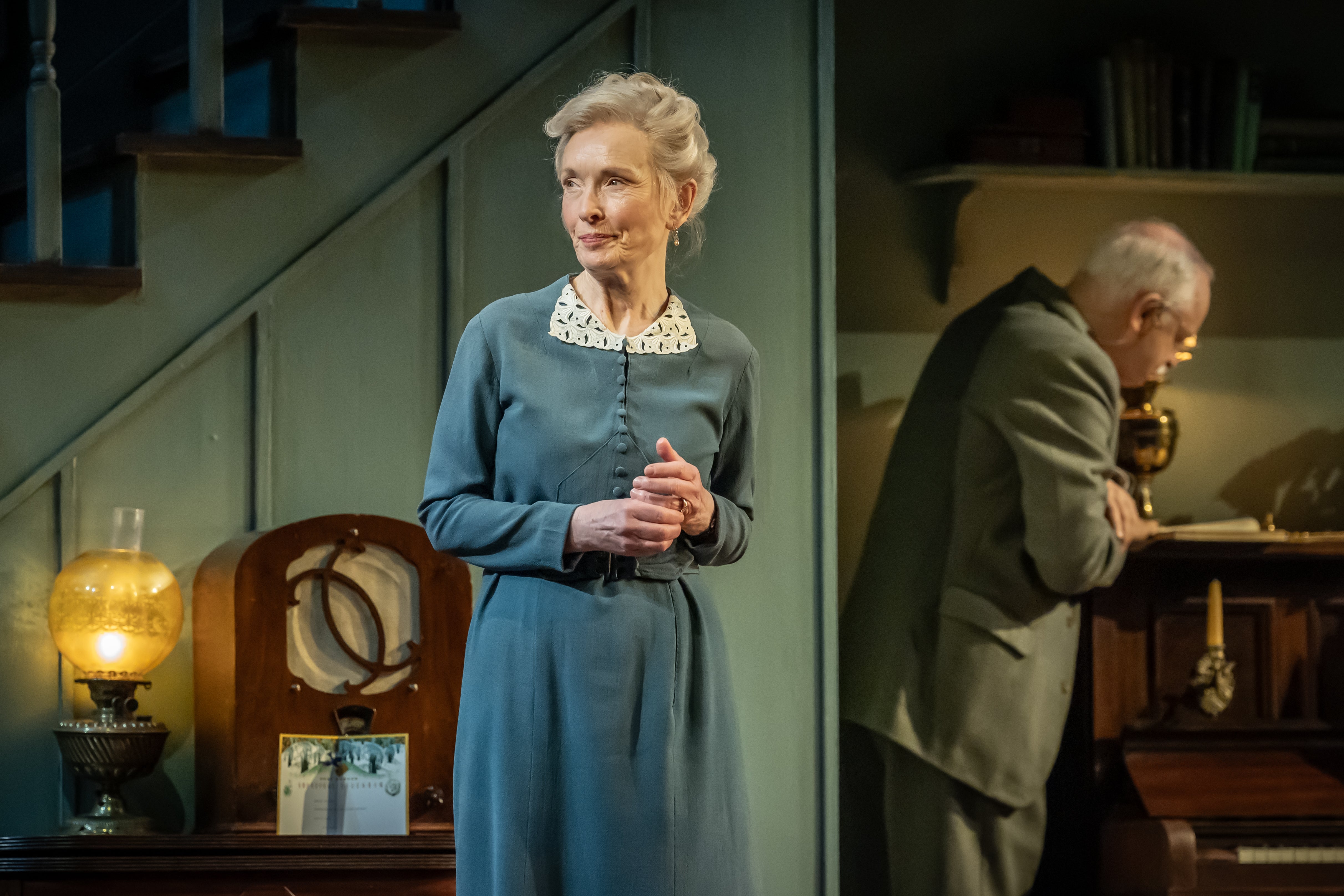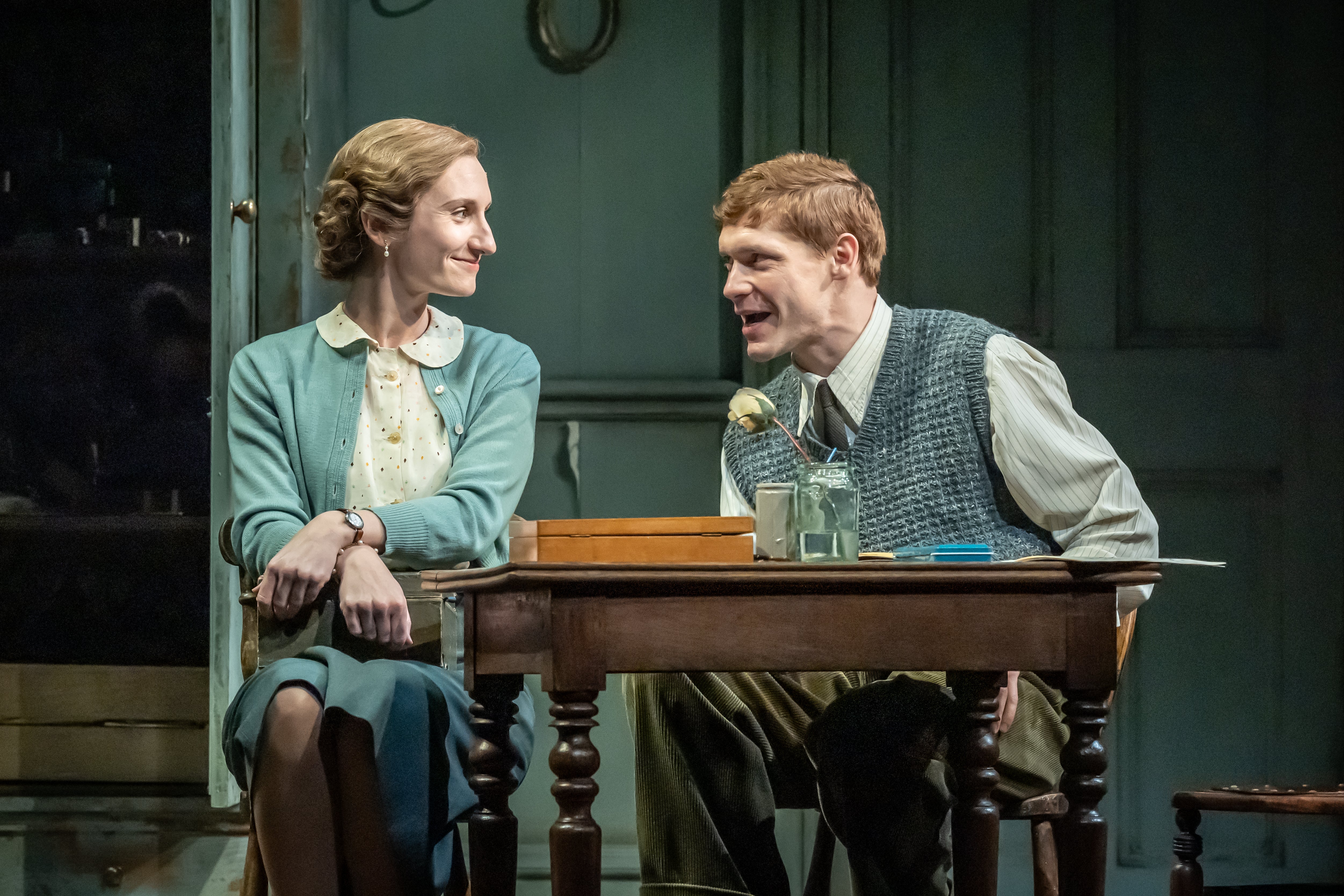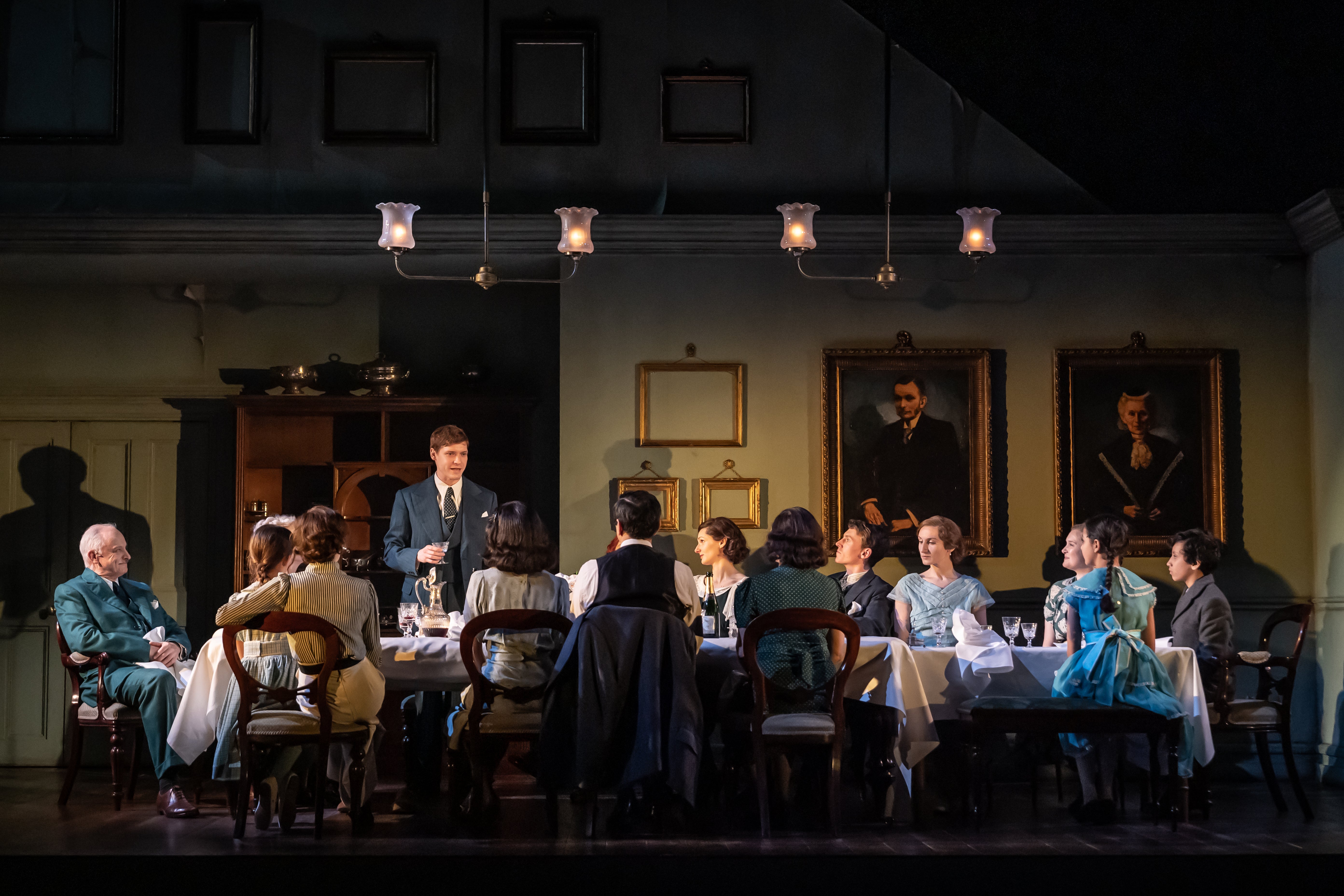Dear Octopus review: Dodie Smith’s slow burning pre-war family saga will suck you in
Why is the National Theatre staging this frightfully old fashioned play from the 1930s? A superb performance from Lindsay Duncan and a production tinged with foreboding are reason enough

An awfully big house, a terribly large family with frightfully clipped accents. What are we doing here? This gauzy, romantic interwar play, with speeches about family and God and sweet little fireside romances, seems so ridiculously old-fashioned now. Dodie Smith, writer of The Hundred and One Dalmatians, may have been popular back in the day, with a string of theatre successes throughout the Thirties, but what’s her 1938 work Dear Octopus doing on the National Theatre’s Lyttelton stage in 2024?
We’ve got the golden wedding anniversary of Dora (Lindsay Duncan) and Charles (Malcolm Sinclair), who have gathered their family, spread over several generations, under the roof of their big ancestral home to celebrate. There are minor grievances and darling romances, a couple of little secrets, but nothing too profane. It’s obviously a deft bit of writing by Smith, spinning all these plates, but nothing much actually happens in the play, and for a while you do wonder what it’s all for.
At the centre of the many-limbed octopus is Lindsay Duncan’s Dora, a gentle tyrant, constantly giving everyone “little jobs” to do: “Nicholas, dear, just check on the fire. Cynthia, dear, just turn these napkins into water lilies.” It’s a superb performance from Duncan, who holds onto both possibilities simultaneously that her Dora knows exactly how manipulative she’s being and that it’s all the innocent result of her innate guilelessness. She’s commanding but soft, regal but deeply loving.

Bethan Cullinane does great things as spiky, uncomfortable Cynthia, the prodigal daughter who’s been living sinfully in Paris for seven years, and Bessie Carter’s Fenny, the in-house factotum, hoovers up all our sympathies with her unrequited love of Billy Howle’s blithe and oblivious Nicholas. In fact, pretty much all of the large cast suggest huge depths in their performances.
But still, you’re wondering. Why this play now?
Then you start to notice Frankie Bradshaw’s dreamy blue-green set, which catches the shadows of Oliver Fenwick’s gorgeous lighting; how the darkness and the warmth of the old house draw you in, everything barely visible in the firelight and gaslight. There’s the way that almost all the costumes pick up a shade of this blue-green, like the characters are part of the fabric of the place. And there’s the rare sight of Dora and Charles’s old-age romance, the couple still deeply devoted to each other after fifty years of marriage. And there’s the fact that we’ve got a play by a woman, directed by a woman (Emily Burns), and full of brilliant female characters.
And it takes a long time, but slowly you’re absorbed into the play, osmosed onto the stage, until you’re a part of the Randolph family, too.
And when you’ve been pulled close to the fireside and start to love all these characters, Burns reveals even more: that all the gorgeousness of the staging is too gorgeous. A play written in 1938? The happy endings, we now know, couldn’t last – not when Chamberlain’s radio reports sound increasingly pessimistic.

Nicholas makes a speech about family – “family, like nearly every British institution, is adaptable; it bends, it stretches, but it never breaks” – and, of course, that’s still true today, but for a play with such a happy ending, Burns stages it like tragedy is imminent. There’s no great twist or anything. It is what it is: a slightly soppy, unfashionable play whose 90 years are showing. But Burns and the cast honour it, and find truth in it, and eventually it becomes a pretty great pleasure to spend time in the company of this family – and that’s justification enough.
National Theatre, until 27 March



Join our commenting forum
Join thought-provoking conversations, follow other Independent readers and see their replies
Comments